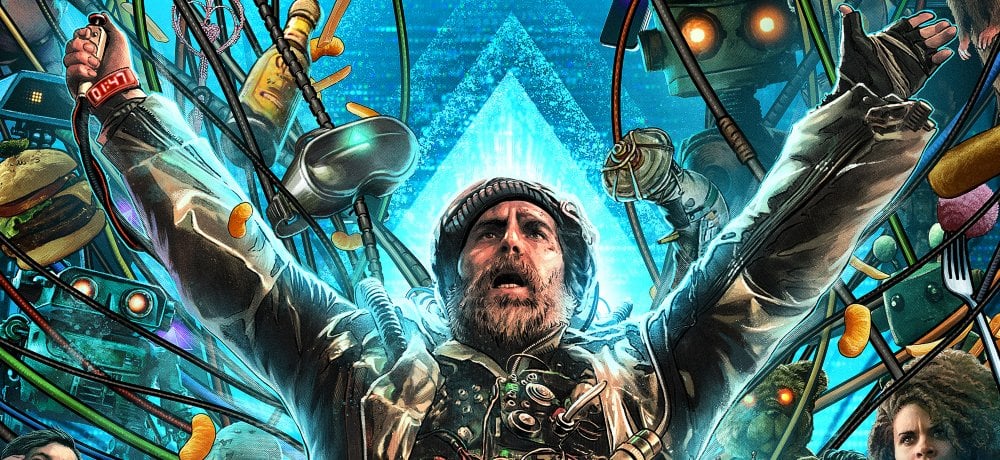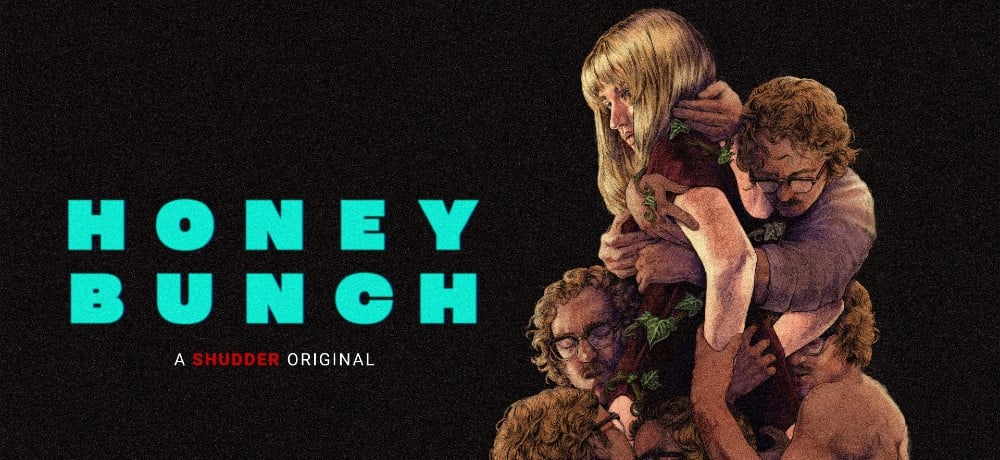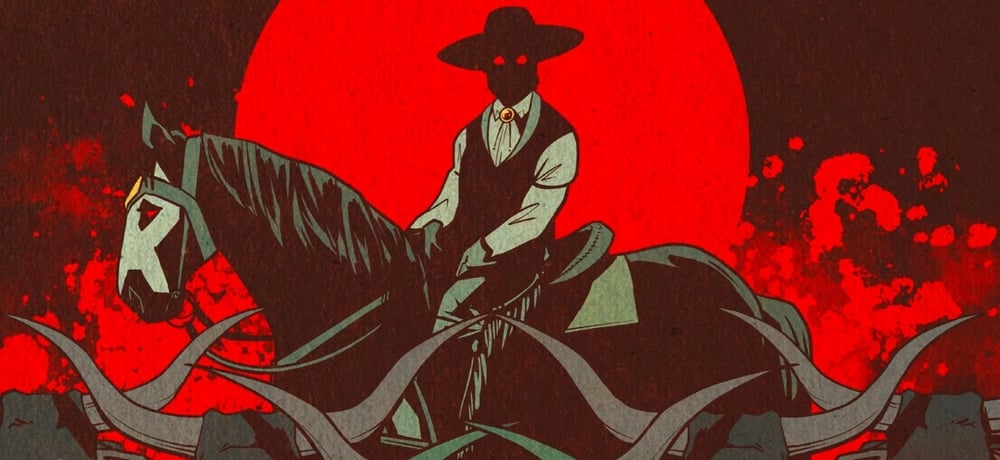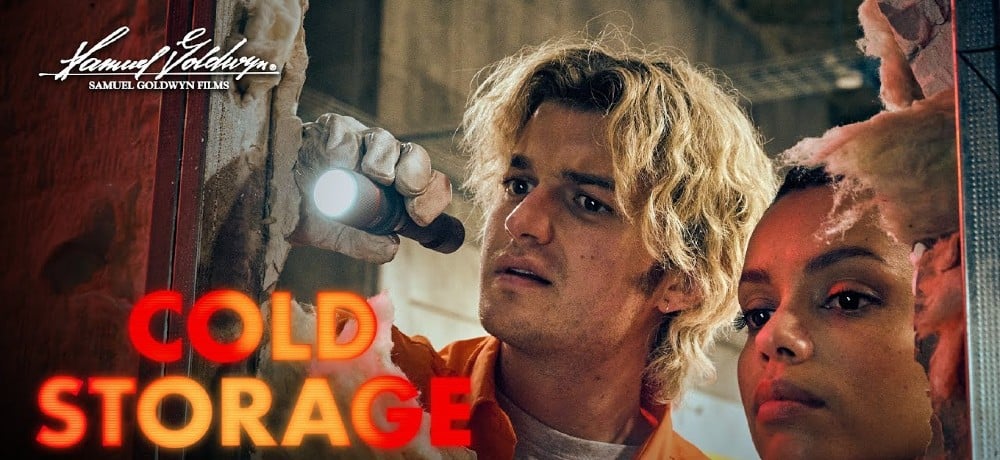





Directors Duane Graves and Justin Meeks are the subject of our latest Q&A feature, telling us about their experience with the recently released cannibal film, Butcher Boys:
Can you tell me how you got involved with Kim Henkel on this project? Was this something you came to him with or the other way around?
Duane Graves: We've had a long 16 year relationship with Kim Henkel. He was our college film professor back in the late 90's. We took a year of screenwriting courses under him, and after graduating we kept in touch. Justin and I produced a trio of short horror films that Kim produced, and eventually we decided to do a feature film back in 2006 called "The Wild Man of the Navidad." That film premiered at the 2008 Tribeca Film Festival in NYC and was picked up by IFC Films for release internationally. The success of that small first film got the attention of the producers of Butcher Boys, which Mr. Henkel had been shopping around for a few years.
Justin Meeks: Kim asked us to direct Butcher Boys. He saw what we did with our first feature " The Wild Man of the Navidad", and had faith that we could bring his script to life. Kim had been a producer on many of our short films in the past and was very familiar with our work.
The story is based on Jonathan Swift's A Modest Proposal. When it came to developing the script, did you two provide a lot of input and collaborate with Kim?
Duane Graves: We were not involved in the writing of the actual script. Kim wrote it back in 2008 as a modern sequel to "Chainsaw," and it somehow got roped into the deal they were making for the new "Texas Chainsaw 3D" project. Eventually the producers of Butcher Boys got the script rights back, I think in early 2010, and Kim did some rewrites to make it a new franchise. That's when we were brought on board to direct the film. Once the rights were secured back with the producers it started to move very quickly. We shot the film in the fall of 2010 and I edited it all through 2011.
Justin Meeks: Duane and myself spent weeks going over the script in full detail with Kim during pre-production. Years before that we had read a more rudimentary form of the script, which was intended to be another Chainsaw installment. Before pre production, Duane and myself had written a few scenes to be added to Butcher Boys, but they never made the final draft.
Was this a difficult movie to secure funding for? There are so many indie horror productions and a number of cannibal films.
Duane Graves: I don't think it was particularly difficult for the producers to secure funding. Bob Kuhn was the executive producer on the project, whom Kim had worked with previously on "The Texas Chainsaw Massacre: Next Generation." It isn't easy to secure funding for ANY project these days, horror or not, so I'm sure they had a few obstacles to overcome. Their "Chainsaw" roots helped them a bit too, I'm sure.
Justin Meeks: Funding was in place for the movie, so that was not a issue for us. Being able to do the movie for the amount of funds in place, was however an issue. But, in the end, we had a very talented crew and cast that helped find creative ways to tell our story. Our cannibals stand out from others in that they are very successful businessmen and are pushers of the product as well as connoisseurs. They have pull in political arenas and keep powerful and influential company addicted . They are stocked with guns, money and are ready to start a war if need be. They have no regard for society or laws or morals for that matter. Butcher Boys are about chaos, and watching the world burn, they just want to be the ones to start the fire!
When it came to casting, you were able to secure a number of "Chainsaw" actors, along with other genre actors for some of the lead roles. Can you tell us about working with them on set?
Duane Graves: Kim's script clearly embraces his "Chainsaw" past, and so it only felt right to stuff it with as many cameos as we could. In a way, Butcher Boys is like a bloody love note to all of the talented people that have contributed to the "Chainsaw" universe over the last 40 years. Kim had stayed in touch with many of them, so it was not difficult to get them all aboard. They are all extremely professional and delightful to work with. Ed Neal is one of our favorite actors to work with as he's basically a constant stream of hilarity. We decided to cast him in the Western we're currently working on - and personally I feel that his role in it is one of his best since Future Kill.
Justin Meeks: We had a great group of actors, and it was great to work with them all. Everyone of the actors were extremely into their roles, so it was a joy to direct and guide them. We pulled most of our actors from Austin and Dallas, and really spent time in the casting process to get the exact characters we had in mind. It was particularly enjoyable to work with such a fast pace script, and the challenges it brought for the actors.
Kim Henkel was a producer on this movie as well. What was your experience like with him on set?
Duane Graves: Kim was often on set, in the background, watching from the sidelines. Occasionally he'd come whisper in my ear if he felt strongly about something - but by and large the reins were given to us. All in all though, it was a collaboration. We did not deviate from Kim's script much, if at all. The way you watch it is the way you read it.
Justin Meeks: Kim is a perfectionist, and very particular, so I know it was hard for him to let us take the reigns. But,for the most part, he stayed on the sidelines and let us direct. He was also a working producer, and brought many years of experience to the table.
Any movie, but especially indie movies, run into issues due to time/budget. What would you say the biggest challenge was during filming? Was there anything you wanted in the film, but weren't able to get?
Duane Graves: We were able to cover the entire script, but the movie moves at such a fast pace that the first pass of it was only about 75 minutes. We went back and shot another week, padding out the middle and climax of the film considerably. That gave us the opportunity to take our crew to San Antonio and get the wide open cityscape shots that we felt were missing. As with any film, there were countless issues we ran into along the way. The most challenging by far were the locations. We shot in some really dangerous, dusty, dark environments over the course of 6 weeks. The most memorable was a huge underground "dungeon" like room directly underneath a functioning SEARS store in Austin. We had to shoot at night so the escalators were turned off - they were directly above our heads. The floors were this fine powdered dirt that got kicked up into the air with the slightest movements. We were all hacking up a lung! The entire shoot was on the vampire schedule too. Only two days were filmed during daylight hours, so that was pretty rough as well.
Justin Meeks: Sure, Time and Budget. Damn, those two! But with low budget and limited time, pre production is key!! Once we had all our locations, actors, crew, and schedule, in place.... we were still in a rush. There were a tremendous amount of locations and 90 % were shot at night, not to mention the cast, which was large.. So, there was not any time in our day to add much that wasn't in the script. We did add a mad, blind, crazed orphan child in the fissure, which was cut.
Can you tell our readers about some of your favorite on-set memories while working on Butcher Boys?
Duane Graves: Really, the entire experience collectively was my favorite memory. Mainly because this was our first time to work with a really large crew. We were used to doing movies with a handful of friends out in the woods on the weekends. It was an incredible collaboration with so many amazing artists, but also extremely stressful and challenging at the same time. The hardest part was trying to keep the entire cast and crew on the same creative track, all the while constantly protecting Kim's script. We learned a lot, and it prepared us for our current project - which is our most ambitious one yet.
Justin Meeks: Wow, so many crazy memories, but I would say wrecking the cars was always a great memory. You get one shot, so the adrenaline was always high, and you never knew what those clunkers would do. Cameras, speed, angles lights all had to be perfect, because dents don't pop out, and dead people don't come back to life.We
With Butcher Boys now being released in the US, what do you have lined up next? Will you continue to work on new horror movies?
Duane Graves: We are currently deep in post production on a dark Western titled "Red on Yella, Kill a Fella." We shot it all across Texas in the fall of 2012, and it includes several cameos from noteworthy horror icons such as Ed Neal, Michael Berryman and Bill Johnson. We're very proud of it and hope to premiere it in the first quarter of 2014.
Justin Meeks: Duane and I have a few scripts written, and a few not finished. We are in the completion of a Western, "Red on Yella Kill a Fella", and also are about to launch our website Greeksfilms.com with tons of unseen footage, interviews behind the scenes etc. We also have a new "Wild Man of the Navidad' script that continues were the first film left off!!
---------
"From the writer/producer of The Texas Chainsaw Massacre comes this gut-wrenching, non-stop roller coaster ride through the hellish underbelly of inner-city America. A birthday celebration at an upscale restaurant sets in motion events that bring a group of friends face to face with the macabre world of cannibals, the Butcher Boys. The Butcher Boys are international predators who deal in human flesh - dead or alive."
Butcher Boys was directed by Duane Graves and Justin Meeks, written by Kim Henkel, and stars Ali Faulkner, Johnny Walters, Derek Lee Nixon, Tory Tompkins, and Gregory Kelly. The movie was released to select US theaters and VOD this weekend.